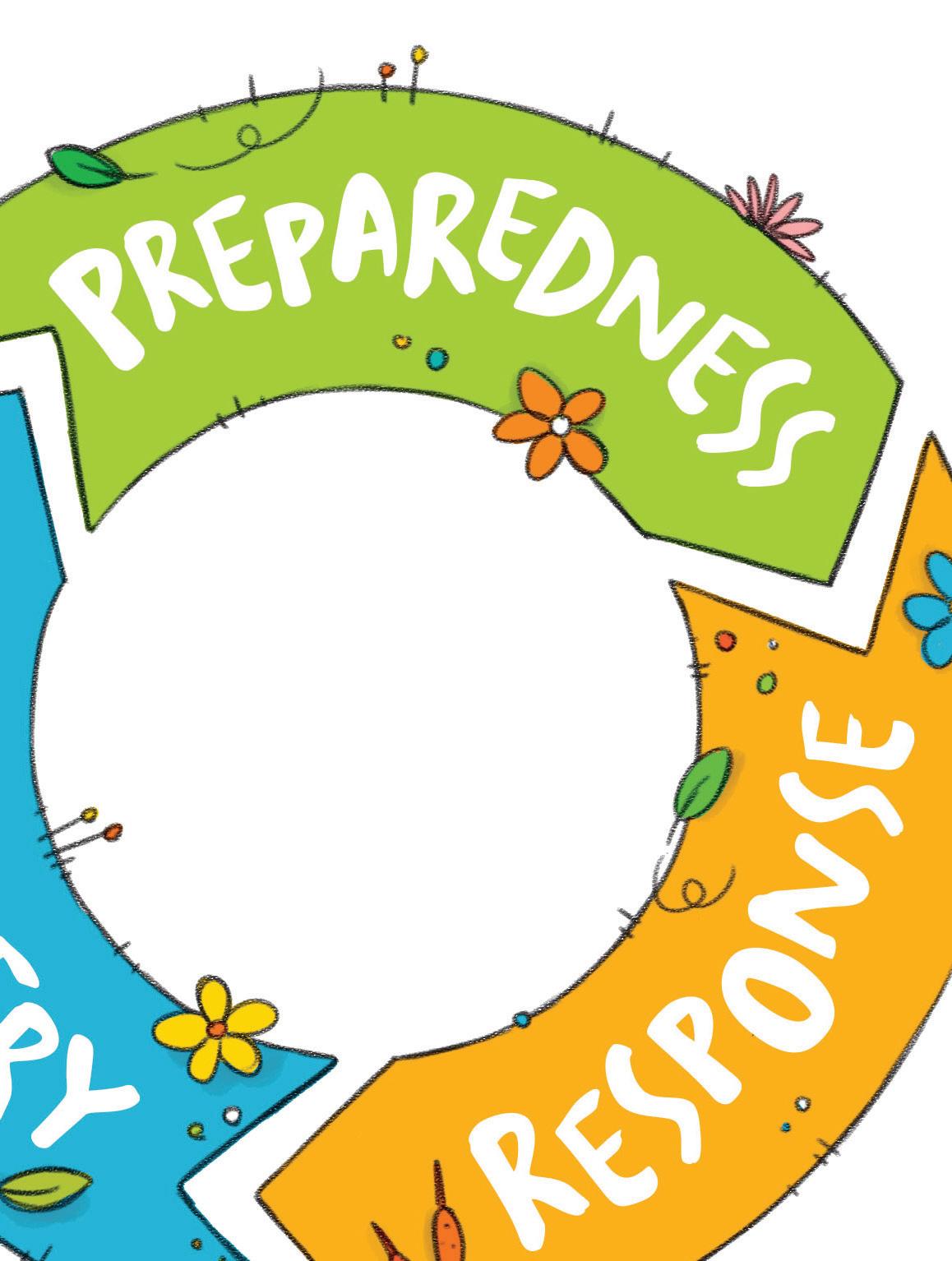
6 minute read
New government ‘a breath of fresh air’ for sector
from Bedrock #3 2022
by IEU NSW/ACT
New Federal Government ‘a breath of fresh air’ for sector
With a new Federal Government and Minister for Early Childhood Education committed to improving the working lives of Australians, it is pertinent to reflect on our union’s federal agenda and key priorities for the early childhood education (ECE) sector.
Advertisement
Emily Campbell asked Minister for Early Childhood Education and Youth Dr Anne Aly and IEUA Federal Secretary Christine Cooper about what’s next for IEU members employed in the sector.
Minister’s attentiveness refreshing
The prospect of a change in federal government in the lead-up to the recent election brought hope for opportunity and change in the early childhood education (ECE) sector, IEU Federal Secretary Christine Cooper said.
“With the commencement of the 47th parliament, this hope will now turn to strong expectations,” Christine said.
Christine said Anne Aly had already consulted the IEU and other unions on a range of matters relating to ECE policy and reform.
“Since the new Federal Government has been elected, our union has already been consulted more than we were during the entire tenure of the previous Coalition government,” Christine said.
“Minister Aly met with IEU representatives within the first few weeks of the new government being formed, and we have established a commitment to continue to meet with our union regarding issues in the sector.
“It’s a breath of fresh air that the views of education unions are now being genuinely listened to and considered by government, becoming more central to the early childhood education portfolio.
“Up until now, the coalition government relied on advice from actors external to ECE and the realities faced by our members employed in the sector.
“As a result of our union being sidelined and ignored by the Coalition, education policies that have been implemented over the past decade fail to support or reflect the realities of the professional practice of ECE professionals.
“Ultimately, we are the voice of ECE practitioners, including teachers and assistants, and should be respected as such,” she said.
Key priorities moving forward
Major priorities IEU members are calling on the government to improve in the ECE sector include: • certainty of funding tied to the delivery of professional salary and conditions • strategies to attract and retain quality staff • industrial relations reform to fix the broken collective bargaining system.
“The current ECE crisis is due to decades of disinterest, irresponsibility and the ‘for profit’ strategies of the previous Coalition government,” Christine said.
Minister Aly said the Federal Government is committed to reforms which will benefit the sector.
“The Federal Government is committed to high-quality, accessible and affordable early childhood education to support working families and give all Australian children the best possible start in life,” Minister Aly said.
“We understand that early childhood education employees play a vital role, not just for children and families but also the wider economy, and they deserve to be recognised and valued consistent with that critical role.

“It’s important to acknowledge that more needs to be done to develop, recognise and support a high-quality early childhood education workforce,” she said.
Minister Aly said her government is committed to working with all states and territories to deliver universal access to high-quality preschool for all children in Australia.
“Quality preschool education sets the foundation for all children to realise their potential.
“Investment in preschool education is also a critical part of this government’s economic reform agenda.
“The Preschool Reform Agreement builds on the work started by Kevin Rudd and Julia Gillard 15 years ago when they committed funding to the first National Partnership on Universal Access to Early Childhood Education.
“Our $2 billion investment through the Preschool Reform Agreement will support state and territory governments to deliver universal access to 15 hours of preschool a week to over 300,000 children a year for the next three years,” Minister Aly said. take action and consider strategies to tackle the widespread teacher shortage crisis plaguing the sector.
“We have been in round table stakeholder discussions held by the Minister and continue to advocate the same thing we have been for years,” Christine said.
“Teacher shortages in the ECE sector are a massive issue and pay rates for qualified early childhood teachers in some states and territories remain inferior to teachers in many primary and secondary schools.
“There is an urgent need to attract and retain qualified ECE teachers in our sector, because we are losing them due to burnout, unsustainable workload, insecure work, inferior pay and working conditions.
“In order to cope, centres are closing rooms, manipulating ratios, combining age groups, rearranging session days and requesting staff to work additional hours.
“IEU members are struggling to deal with workload and exhaustion, unable to take sick leave due to the lack of replacement staff.
“This is a vicious cycle and one that can only be broken by leadership from the Federal Government,” she said.
Christine said she was alarmed by the number of waivers granted to ECE centres across Australia allowing them to operate without suitably qualified staff.
“The number of ECE centres with waivers and exemptions from the regulations is on the rise and allows providers to operate without tertiaryqualified ECE teachers.
“Concerningly, there has been a push from actors external to education to reduce the qualifications needed to work in ECE, which devalues the professional work being performed.
“This idea is a knee-jerk reaction to the teacher shortage crisis which will actually reduce the quality of education provided to children,” she said.
Teacher workforce, wages and conditions ACECQA priority
The Australian Children’s Education and Care Quality Authority (ACECQA) Workforce Strategy plan has elevated teacher workforce, wages and conditions as the number one priority – although discussions on how that will be achieved and what it will look like are yet to be had.
Minister Aly said the Workforce Strategy aims to support the recruitment, retention and sustainability of the early childhood education workforce.
“I believe as a society we need to do more to recognise that early childhood education teachers are professionals with exciting and rewarding career pathway opportunities.
“The strategy includes practical actions aimed at promoting careers in the sector and improving the experiences of early childhood teachers and assistants.
“The early childhood sector will also benefit from Labor’s commitment to improve workforce supply through fee-free TAFE, additional university places, and the establishment of Jobs and Skills Australia to support workforce planning,” she said.
Industrial relations reform overdue
Christine said fixing Australia’s problematic industrial relations structure and broken bargaining laws would be crucial to addressing the teacher shortage crisis.
“Members employed in the ECE sector have struggled under a collective bargaining legislation which not only fragments the sector into single site agreements but also disempowers employees’ capacity to negotiate, and hands over control to aggressive employers determined to make no real concession,” Christine said.
Currently, IEU members and all Australian workers are dealing with an IR system characterised by: • lack of consistent conditions weighed down by bargaining restrictions • employers having the balance of power • onerous and costly limits to taking industrial action.
“This must change to restore a balance of power,” Christine said.
While specific details of the government’s industrial relations reform plan remain to be seen, the government has agreed the system must be improved to get bargaining moving and help tackle the current low wage crisis.
Christine said our union looks forward to continuing to work with Minister Aly and the Federal Government to provide long overdue reform to ECE in Australia.
“The IEU holds strong expectations the new Federal Government will move expeditiously to make the necessary changes to ensure quality early childhood education is safeguarded and supported into the future,” she said.










